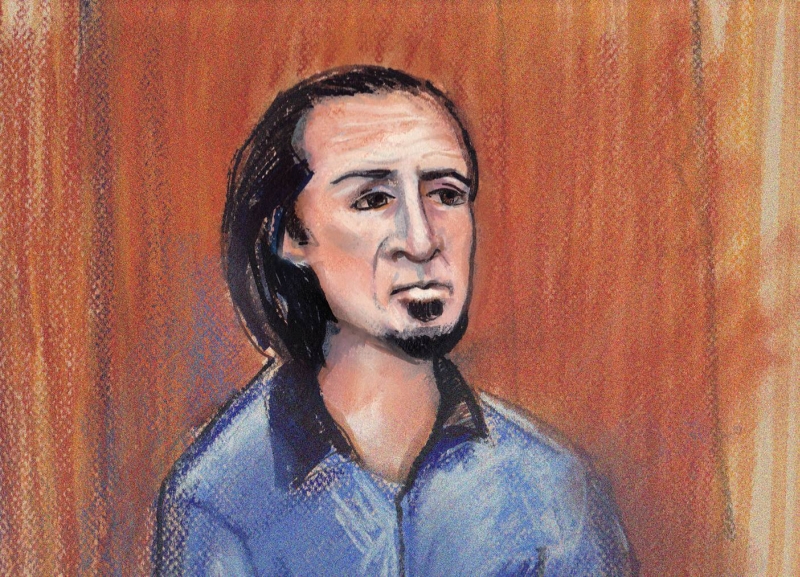EDMONTON – Alberta’s highest court is contemplating whether an Edmonton man should be extradited to the United States to face terrorism and murder charges.

Three lawyers for Sayfildin Tahir Sharif argued Thursday that the man shouldn’t be surrendered to face trial in New York.
The Appeal Court reserved its decision after hearing about four hours of arguments. It didn’t indicate when it would be ready to make a ruling.
Sharif, who remains in custody, didn’t attend the hearing.
The 41-year-old is accused of murder and supporting a terrorist group that took part in a suicide bombing in his native Iraq. Five U.S. soldiers were killed when a truck filled with explosives was detonated at a military checkpoint in 2009.
Canada’s Justice minister granted extradition last summer, after receiving assurances from the U.S. that Sharif wouldn’t face the death penalty. A few weeks ago, defence lawyers also received a letter from U.S. authorities promising the man won’t be held indefinitely in pre-trial detention.
Sharif, who also goes by the name Faruq Khalil Muhammad Isa, is an ethnic Kurd who was born in Iraq but moved to Toronto as a refugee in 1993. Four years later, he became a Canadian citizen.
In 2011, he was arrested at an Edmonton apartment where he lived with his girlfriend and her children.
Defence lawyers argued Thursday that RCMP didn’t allow Sharif access to a lawyer or interpreter the day of his arrest, and transcripts of police interviews shows he didn’t understand what was going on.
They also told court allegations against their client came from three people, including his brother, who were tortured by investigators in Iraq.
Lawyer Nathan Whitling further argued that Canada can’t officially extradite Sharif on all the charges he’s facing.
“There was an end run done around the judicial phase of these proceedings,” Whitling told the judges.
Sharif originally faced two U.S. charges: facilitating terrorist activities and conspiracy to commit murder. A Court of Queen’s Bench judge ruled in 2012 that there was enough evidence to extradite Sharif on those offences.
But Whitling said sometime after the lower court ruling, five charges of aiding murder were “introduced at the last minute, through the back door,” and the justice minister at the time, Rob Nicholson, ordered Sharif be extradited on all seven charges.
Federal Crown Stacey Dej told the panel that the charges all deal with the same “conduct” — the deaths of the soldiers.
“It doesn’t matter how the U.S. characterizes or names the offences,” she said.
Court of Appeal Justice Jack Watson said the federal Justice minister needs to ensure the extradition process is fair and can’t second-guess the judicial process.
Justice Adam Germain ruled in 2012 that there was enough evidence to extradite Sharif on the two charges. He determined the allegation that evidence in the case was obtained by torture was heresay.
Court heard that evidence led to intercepted phone and Internet conversations. The Crown argued the conversations showed Sharif helped jihadists contact members of a terrorist network as they made their way from Tunisia to Iraq to make the attacks.
Germain called the recorded calls and emails “chilling.” He cited one email between Sharif and another terror suspect who was “preparing for a one-way journey to death.” The pair discussed the number of virgins the man would get in heaven.
Sharif was further questioned by police about counselling a young woman in Morocco over the Internet about becoming a suicide bomber. Sharif told RCMP he was just showing off because he wanted a relationship with the woman, and he doesn’t believe in suicide bombers.

Comments